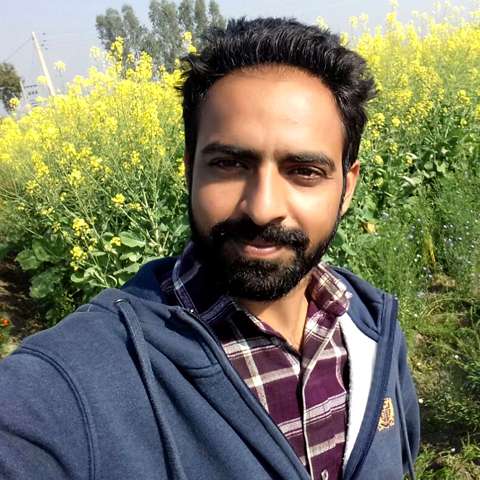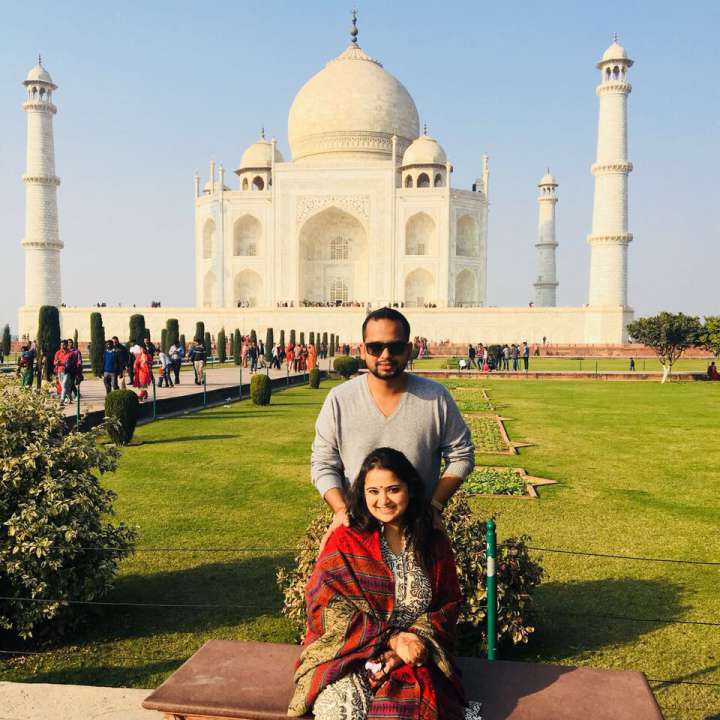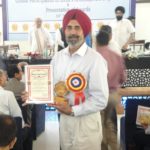Meet the Modern Farmer, Who Is Growing According To the Need of the Hour
For Karamjit Singh, becoming a farmer was a distant dream, but the circumstantial conditions changed everything. In the last seven years, Karamjit Singh’s perception changed completely towards farming and now he has turned towards organic farming completely.
Like other young boys, Karamjit Singh was also a free soul who loved to play cricket all day long, he used to participate in the local cricket tournaments. His life was confined between school and playground. He never thought at that time that his life would take a whole new turn about which he had never thought about. During his academic years (school) in 2003, his father passed away and soon after some time, in 2005, his mother also passed away. After that only his grandparents were left in his family. At that time, situations were not under his control, so he decided to drop his studies after 12th and support his family.
At a very young age he got married and he also had the opportunity to go abroad and start his life from a new beginning again, but he chose to stay back with his grandparents. 2011 was the year when he decided to step in the field of farming. He started cultivating cereals, pulses, grains, and everything organically for home purpose in a small acreage. He got inspired by other farmers in his area and slowly expanded his farming expanse. Time and experience built confidence and then Karamjit Singh took his land back from lease.
He added more vegetable varieties like Squash Melon, Cauliflower, Okra, Peas, Chilli, Sweet Corn, Bottle Gourd, and Brinjal in his farmland and also started preparing nursery of chili, tomato, capsicum, and other vegetables.
The exposure that Karamjit got from farming, boosted up his confidence and in 2016 he decided to take 14 acres land on lease; and this is how Karamjit started making a happy life out of his living.
Today, in the life of Karamjit, he is still a newbie in the field of farming who has the curiosity to explore more and do more. With the same spirit, he entered in the field of floriculture, in 2017 and started cultivating Marigold by inter-cropping it with Gladiolus.
There also came a man- Ashok Kumar in the life of Karamjit Singh, who enlightened him with the knowledge of friendly pest and enemy pest, and this is how Karamjit Singh boycotted the use of insecticides in his field completely. Karamjit Singh took every chance as an opportunity to learn something new about farming and this is how he stepped towards his successes.
Currently, the whole farm of Karamjit Singh is equipped with drip irrigation system and pack-house for vegetables. He gives every nutrient to the vegetables in the most natural way possible. For marketing, he is following farm to the home concept in which he is doing home delivery of fresh insecticides free vegetables and he has also established an on-farm-market through which he is earning well.
For his initiative of cultivating fresh insecticides free vegetables he has been awarded by PAU, Kisan Club on 1st February, and he was also awarded second prize for best quality peas by Patiala Horticulture Department in 2014.
Karamjit Singh’s wife – Premdeep Kaur is his supporting pillar, she helps him in labour and harvesting process, and he manages the marketing part. In the beginning, there were some problems in marketing, but slowly he overcame all the hurdles with his hard work and enthusiasm. In place of chemicals and fertilizer, they prepare organic compost and spray at home. Recently, Karamjit Singh has planted 200 fruit trees of Kinnow, Pomegranate, Guava, Apple, Loquat, Lemon, Java Plum, Pear and Mango in his farm and in future he wants to focus on guava orchards.
“Committing suicide is not the solution. Farmers have to come out of the conventional cycle of farming, only then they can achieve success in long run. Moreover, farmers have to understand the importance of our Mother Nature and they should work towards saving water and soil.”









